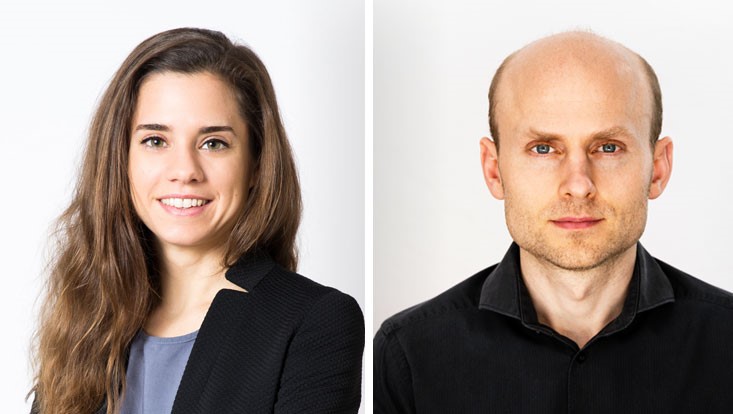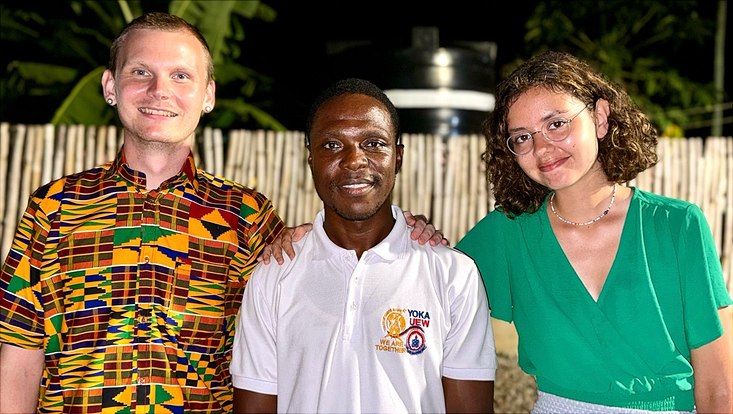New Grants from the Ideas and Venture funding thatHow come so many children die after wars and why do people who are sick go to work?
1 August 2023, by Christina Krätzig

Photo: UHH/privat
Every year, researchers at Universität Hamburg can apply for funding from the Ideas and Venture Fund to prepare for a large externally funded project. Below, we introduce 2 of the 14 projects currently underway.
Prof. Dr. Max Schaub: Why does child mortality rise even years after armed conflict?
In wars, infrastructure is destroyed, doctors emigrate, and often, agriculture cannot resume right away, so people starve. All of these factors contribute to higher child mortality years later. Do these factors sufficiently explain the rates? Political scientist Max Schaub discovered that child mortality rises long term following terror attacks even though the factors mentioned above do not apply. “I suspect that there is another, as-yet unknown reason and that is changes in parental behavior,” Schaub, junior professor of international relations and global health, explains. “It has been shown that the experience of violence shatters trust in the state and this could mean that parents and their children see doctors less often and do not inform themselves about services and preventive measures.”
To test this hypothesis, Schaub, a researcher from the University of Konstanz, and a researcher from the University of Erfurt will interview 1,500 young parents in northern Nigeria. In the crisis region, a few of these parents will most likely experience violence in the next few years. Repeat surveys should reveal how these experiences affect their attitudes to public health and the health of their children.
“If we discover that loss of trust is a crucial factor in higher child mortality, then we know that the parents in question need to be actively reintegrated into that system, for example, by social workers who seek them out,” Schaub says regarding his research goals. He has been granted €39,000 from the Ideas and Venture Fund. His project is situated in the Violence and Security profile initiative.
Prof. Dr. Eva-Maria Wild: Why do people work even if they are sick?
Presenteeism is the term used when employees do not call in sick when, in fact, they are. The business administration expert Eva Wild suspects that this is not merely an expression of individual personality but that corporate culture in companies and organizations may contribute to this kind of behavior. With consequences: “Presenteeism can lead to burnout, psychological, and, in the long term, physical illness,” says the junior professor of management in the health system.
Wild wants to use her €18,000 from the Ideas and Venture Fund to develop a scale to measure a culture of presenteeism. In several rounds, she wants to survey between 500 and 1,000 people per round. “For example, we want to know whether they are afraid of negative consequences if they call in sick or if their supervisors—who, of course, are supposed to be role models—come to work sick,” she explains. After each round, she will slightly adjust the scale with the aim of filtering out 10 to 15 central questions. Subsequently, she would like to initiate a larger project funded by the German Research Foundation. The scale can also be used by other researchers.
The project is situated in the Health Economics emerging field. Eva-Maria Wild is one of the core members of the Hamburg Center for Health Economics at Universität Hamburg.
One of the conditions for funding from the Ideas and Venture Fund is a substantive link to an emerging field or profile initiative at Universität Hamburg. Find more information about the Ideas and Venture Fund here.



 As a
As a